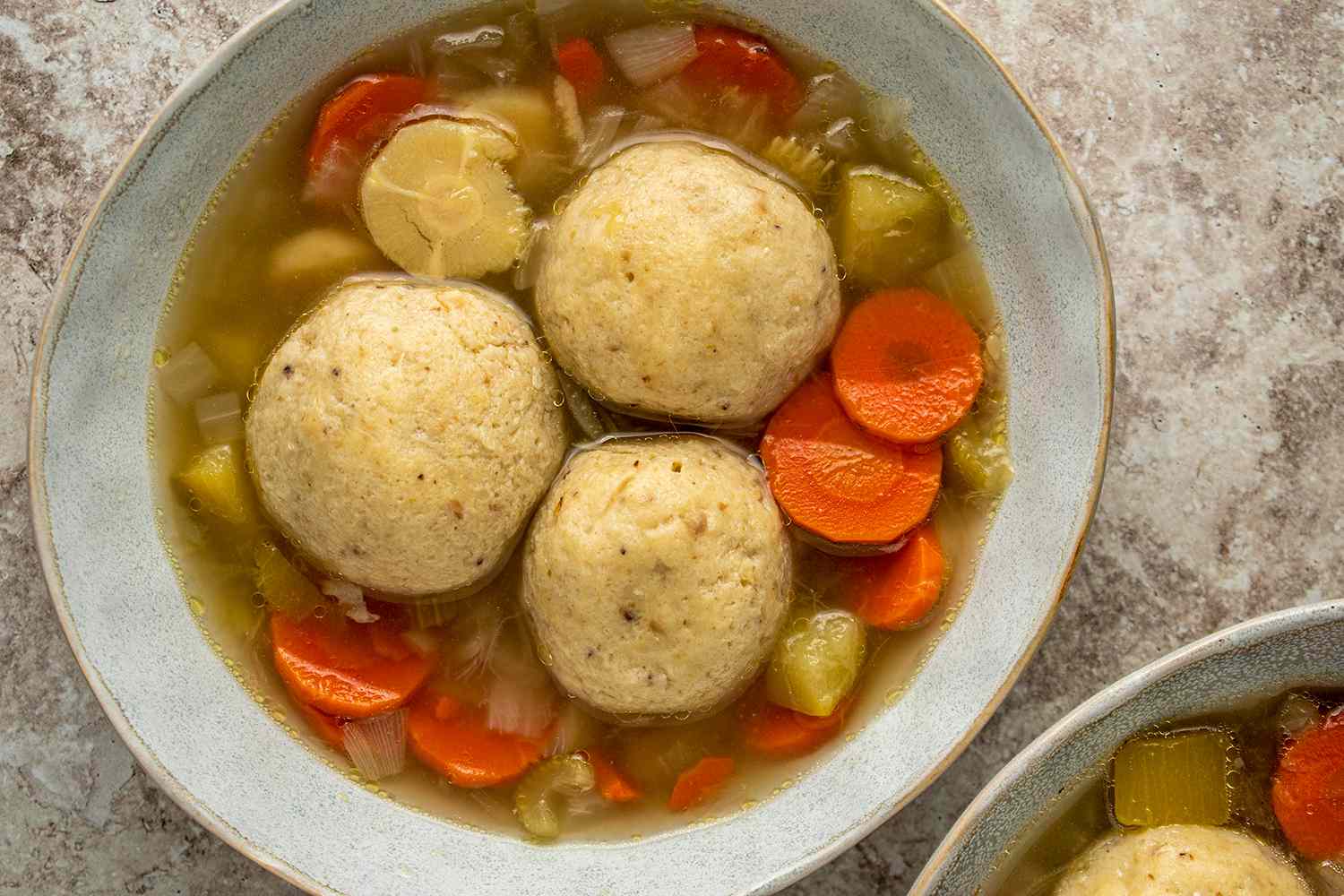Matzo balls, often called “kneidlach,” are a cherished culinary delight with a rich history. These round, dumpling-like morsels play a significant role in various cultures and cuisines. In this article, we’ll delve into the world of matzo balls, answering common questions about their ingredients, taste, cultural significance, and more.
What Are Matzo Balls Made Of?
Matzo balls are traditionally made from simple ingredients:
- Matzo Meal: This key ingredient consists of ground, unleavened matzo crackers.
- Water: To create the dough, you’ll need water.
- Fat: Many recipes use schmaltz (rendered chicken fat) for flavor, but oil or vegetable shortening can be substitutes for a lighter version.
- Eggs: Eggs are used as a binding agent and help matzo balls hold their shape.
- Seasonings: Salt, pepper, and sometimes additional flavorings like parsley are added for taste.
What is the Matzo Ball?
Matzo balls are essentially dumplings made from the matzo meal dough. They come in various sizes, from golf ball-sized to larger, and are typically boiled in a flavorful broth, often chicken soup. The texture can vary from light and fluffy to denser, depending on the recipe and personal preference.
What Do Matzo Balls Taste Like?
The taste of matzo balls can be described as mild and slightly savory. They inherit some flavor from the broth they are cooked in, making them a comforting and hearty addition to soups. The texture can range from tender to firm, depending on the cooking method and recipe used.
What Nationality is Matzo Ball?
Matzo balls have deep roots in Jewish cuisine and are often associated with Ashkenazi Jewish traditions. They are a beloved part of Jewish culinary heritage. However, matzo balls have transcended their origins and are enjoyed by people of various nationalities and backgrounds.
What Religion Eats Matzo?
Matzo is closely associated with the Jewish holiday of Passover, where it holds a central place on the Seder plate. During Passover, Jews consume unleavened bread, including matzo, to commemorate their ancestors’ hurried departure from Egypt when there was no time to let bread rise. However, matzo balls are enjoyed year-round in Jewish households and are not limited to Passover.
Why Is Matzo So Expensive?
The cost of matzo can vary depending on factors such as brand, type (regular or kosher for Passover), and location. Kosher for Passover matzo, which adheres to strict dietary laws, is often more expensive due to the rigorous preparation process. Additionally, the demand for matzo typically surges during the Passover holiday, which can lead to price increases.
How Is Matzo Made?
Matzo is made from only two ingredients: flour and water. The key to matzo’s unleavened nature is the quick baking process. To prevent any leavening or rising, matzo dough must be rolled, pricked, and baked within 18 minutes from the moment water is added to the flour. This tight timeframe ensures that there’s no time for fermentation, resulting in the characteristic crisp, cracker-like texture of matzo.
Does Matzo Taste Good?
The taste of matzo can be a matter of personal preference. Some people enjoy its mild, crisp flavor, while others might find it somewhat bland on its own. However, matzo shines when used in various recipes, like matzo ball soup or as a base for toppings like charoset or cheese.
Are Matzo Balls Healthy?
Matzo balls can be a reasonably healthy addition to your diet, especially when made with vegetable oil or other healthier fat sources. They are a source of carbohydrates and some protein. However, if you’re concerned about calories or sodium, you should be mindful of portion sizes and the type of broth they are cooked in.
Are Matzo Balls the Same as Dumplings?
While matzo balls are often compared to dumplings, they have their unique characteristics. Matzo balls are traditionally made from matzo meal, which gives them a distinct taste and texture. Dumplings, on the other hand, can be made from various ingredients like flour, cornmeal, or potatoes, resulting in a wider range of textures and flavors.
Can I Eat Matzo Ball Soup?
Absolutely! Matzo ball soup is a beloved dish and a comfort food for many. It’s enjoyed by people of various backgrounds, not just those who observe Jewish traditions. The warm, savory broth and tender matzo balls make it a soothing and satisfying choice, especially during colder months.
Does Matzo Cause Gas?
Some people may experience digestive discomfort when consuming matzo, primarily due to its high fiber content. However, not everyone will have this reaction. If you’re concerned about gas or digestive issues, it’s best to consume matzo in moderation and stay hydrated.
In conclusion, matzo balls are a delightful culinary tradition with a rich history and cultural significance. They are made from simple ingredients, offer a mild and comforting taste, and have transcended their Jewish roots to be enjoyed by people from various backgrounds. Whether you savor them in soup or explore creative ways to incorporate matzo meal into your dishes, matzo balls continue to be a cherished part of diverse culinary traditions.
For more information about food and culinary traditions, visit Food Relative to explore a world of flavours and recipes.
